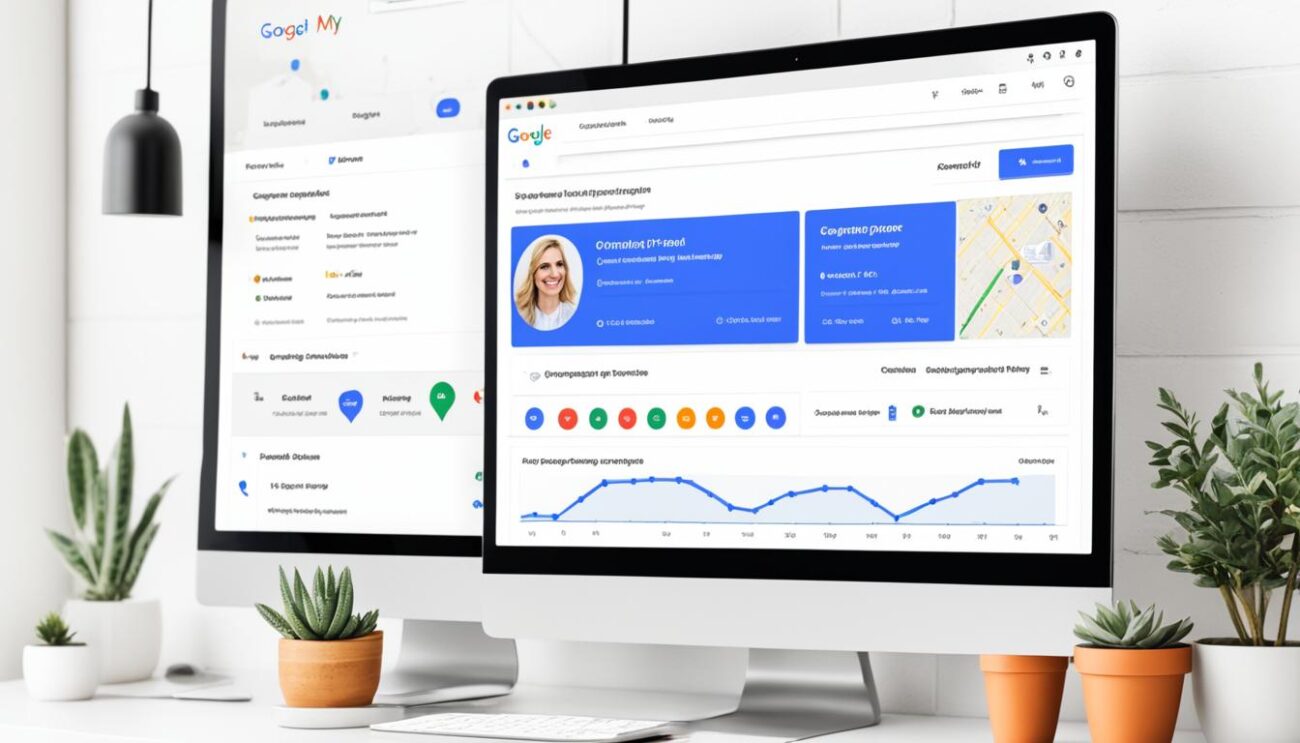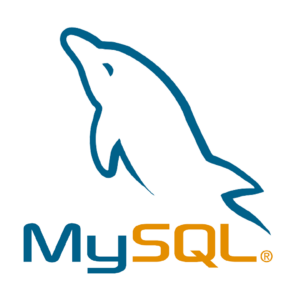
Boost Your Revenue with Local SEO for Businesses
Are you struggling to attract local customers and boost your revenue? Look no further than local SEO for businesses. In today’s digital landscape, local search optimization is essential for businesses looking to thrive in their local markets. But what exactly is local SEO, and how can it help your business succeed?
Local SEO refers to the practice of optimizing your online presence to improve your visibility in local search results. By implementing proven local SEO strategies, businesses can increase their chances of appearing in the coveted top spots on search engine results pages (SERPs) when potential customers search for products or services in their local area.
But why is local SEO important? The answer lies in consumer behavior. Today, more than ever, consumers rely on the internet to discover local businesses and make informed purchasing decisions. In fact, 97% of consumers use the internet to find local products and services.
By optimizing your online presence for local search, you can attract highly qualified leads who are actively seeking the products or services you offer. This targeted approach to marketing can significantly impact your revenue and set your business apart from the competition.
In this article, we will delve into the world of local SEO for businesses and explore the strategies that can help you boost your revenue. From understanding the impact of local SEO on your business to claiming and maximizing your Google My Business (GMB) profile, we will cover everything you need to know to succeed in local search.
Table of contents
Key Takeaways:
- Local SEO is crucial for businesses looking to attract local customers and boost their revenue.
- 97% of consumers use the internet to find local products and services.
- Optimizing your online presence for local search can help you appear in top positions on search engine results pages.
- By targeting local customers, you can attract highly qualified leads who are ready to purchase.
- This article will provide valuable insights and strategies to optimize your online presence for local search and drive business growth.
Understanding the Impact of Local SEO on Your Business
In today’s digital landscape, local SEO has become a game-changer for businesses, especially small and medium-sized enterprises (SMEs). By implementing effective local search optimization strategies, businesses can significantly impact their online visibility, customer acquisition, and overall business growth.
The Necessity of Local Search Optimization for SMEs
Local SEO is essential for SMEs to compete in the increasingly competitive online marketplace. With more consumers relying on search engines to find local products and services, businesses cannot afford to ignore the power of local search optimization.
By optimizing their website and online listings for local search, SMEs can improve their chances of appearing in relevant search results and attracting customers in their target location. This targeted approach allows businesses to connect with local customers who are more likely to convert into paying clients.
Furthermore, local search optimization enables SMEs to establish a strong online presence in their community, creating brand awareness and building trust among local customers. By showing up in local search results, businesses can establish themselves as reliable and credible options within their area.
Capitalizing on Local Search Trends to Drive Business Growth
Businesses that understand and capitalize on local search trends have a significant advantage in driving business growth. Local search trends refer to the specific search queries and behaviors of consumers in a particular geographical area.
By staying up-to-date with local search trends, businesses can tailor their marketing strategies and content to align with the preferences and needs of their target audience. This targeted approach allows SMEs to deliver more relevant and personalized experiences to potential customers, increasing the chances of converting them into loyal patrons.
Additionally, capitalizing on local search trends helps businesses stay ahead of competitors and adapt to changing market demands. By analyzing search data and consumer behavior, businesses can identify emerging trends and proactively adjust their offerings and marketing strategies to meet the evolving needs of the local market.
Claiming and Maximizing Your Google My Business Profile
In today’s digital landscape, Google My Business (GMB) has become an indispensable tool for local businesses. By claiming and optimizing your GMB profile, you can significantly improve your online visibility and attract more customers. In this section, we will guide you through the steps to claim and maximize your GMB profile, ensuring that you make the most of this powerful local search optimization tool.

Let’s dive in and explore how to optimize your GMB profile effectively:
- Claim Your GMB Profile: Start by claiming your GMB profile if you haven’t done so already. This involves verifying your business with Google and providing accurate information about your business, including your name, address, phone number, and hours of operation. A claimed profile is crucial for local search optimization, as it allows Google to authenticate your business and display relevant information to potential customers.
- Provide Detailed Business Information: Fill out all the relevant sections of your GMB profile to provide comprehensive information about your business. Include your website URL, a detailed description of your products or services, and any other pertinent details that will help customers understand what you offer. By providing complete and accurate information, you increase your chances of appearing in local search results and attracting interested customers.
- Optimize Your Business Categories: Select the most appropriate categories that accurately describe your business. Choosing relevant categories helps Google understand the nature of your business and improves the visibility of your profile in local search results. Be specific and choose categories that align closely with your products or services.
- Upload High-Quality Photos: Visual content is powerful in conveying the essence of your business. Take advantage of the image upload feature in your GMB profile and showcase high-quality photos of your storefront, products, team, and any other visuals that represent your business. These images not only enhance your profile but also encourage potential customers to engage with your brand.
- Monitor and Respond to Customer Reviews: Customer reviews play a crucial role in influencing potential customers. Regularly monitor and respond to customer reviews on your GMB profile, both positive and negative. Engaging with your customers demonstrates your commitment to excellent service and builds trust with potential customers.
By following these steps and optimizing your GMB profile, you can boost your online visibility, attract more customers, and dominate local search results. Utilizing the power of Google My Business is essential for any business looking to thrive in today’s competitive digital landscape.
Local SEO for Businesses: Strategies for Boosting Local Visibility
In order to maximize local visibility, businesses need to implement effective local SEO strategies. This section will explore key tactics that can help businesses optimize their online presence for local search.
Keyword Research and Targeting for Local Market Success
Keyword research is a critical aspect of local SEO. By identifying and targeting relevant keywords, businesses can increase their chances of appearing in local search results. To conduct keyword research for local market success, businesses can follow these steps:
- Start with broad keywords related to the business’s industry and location.
- Use keyword research tools like Google Keyword Planner, SEMrush, or Moz to discover additional keywords with high search volume and low competition.
- Refine keywords by considering local modifiers, such as city or neighborhood names.
- Analyze competitors’ websites to identify keywords they are targeting.
- Select a mix of long-tail and short-tail keywords for a comprehensive keyword strategy.
By conducting thorough keyword research, businesses can better understand the language their local audience uses and create content that aligns with their search intent.
Creating Content That Resonates with a Local Audience
Content creation is a crucial component of local SEO. By crafting content that resonates with a local audience, businesses can attract more visitors, engage potential customers, and improve their search rankings. Here are some tips for creating local-focused content:
- Understand the interests and needs of the local audience through market research and customer feedback.
- Create location-specific landing pages, blog posts, and guides that address local topics and provide valuable information.
- Incorporate local keywords naturally into the content, ensuring it flows smoothly and enhances user experience.
- Showcase local expertise and highlight the unique aspects of the business’s products or services.
- Use local imagery and references to establish a connection with the local audience.
By creating high-quality content that caters to the local audience, businesses can increase their visibility, attract relevant traffic, and build trust among potential customers.
Enhancing User Experience Through Mobile Optimization
In today’s mobile-driven world, optimizing for mobile has become crucial for businesses aiming to enhance their user experience and improve their local SEO. With a significant portion of internet users accessing websites and search engines through their mobile devices, it is essential for businesses to ensure that their websites are mobile-friendly and provide a seamless browsing experience on smaller screens.
Mobile optimization involves various aspects, such as responsive web design, fast page load times, and intuitive navigation. By implementing mobile optimization techniques, businesses can create a user-friendly interface that adapts to different devices and screen sizes, allowing users to access information quickly and easily.
A key consideration in mobile optimization is the speed at which a website loads on mobile devices. Slow loading times can lead to higher bounce rates, as users are more likely to abandon a website that takes too long to load. To improve page load times on mobile, businesses can optimize image sizes, minify CSS and JavaScript files, and leverage caching techniques.
In addition to speed, businesses should focus on creating a mobile-friendly navigation menu that is easy to use and provides seamless access to information. Clear and concise menus, intuitive icons, and well-structured content can contribute to a positive user experience on mobile.
Furthermore, mobile optimization plays a significant role in local SEO. Search engines prioritize mobile-friendly websites in their mobile search results, giving businesses with mobile-optimized websites a competitive advantage in local search rankings. Implementing mobile optimization strategies can help businesses attract more organic traffic, generate leads, and ultimately boost their revenue.
To illustrate the importance of mobile optimization, take a look at the following statistics:
| Mobile Optimization Statistics | Percentage |
|---|---|
| Percentage of global website traffic coming from mobile devices | 53% |
| Percentage of users who will leave a website if it is not mobile-friendly | 50% |
| Percentage of users who expect a website to load in 3 seconds or less on mobile | 53% |
These statistics highlight the need for businesses to prioritize mobile optimization and deliver a user-friendly experience on all devices. By investing in mobile optimization, businesses can not only improve their user experience but also boost their local SEO efforts, leading to increased visibility, traffic, and conversions.
Building Local Citations for Improved Local Search Rankings
Local citations are essential for businesses looking to improve their local search rankings. A local citation refers to any online mention of a business’s name, address, and phone number (NAP). They can be found on various platforms such as directories, review sites, and social media profiles.
Building effective local citations requires strategic planning and execution. Here are some strategies businesses can employ for successful citation management:
- Submit to reputable directories: Listing your business on authoritative directories like Yelp, Google My Business, and Yellow Pages can boost your online visibility and credibility.
- Consistent NAP information: It is crucial to maintain consistency in your NAP information across all directories and review sites. Inconsistencies can confuse search engines and negatively impact your local search rankings.
- Optimize descriptions and categories: When creating citations, make sure to optimize the descriptions and categories with relevant keywords to improve search engine visibility.
- Monitor and update citations: Regularly monitor your citations for accuracy and update any changes in your NAP information. This ensures that potential customers have access to the correct information.
- Encourage customer reviews: Positive customer reviews on citation sites not only enhance your online reputation but also contribute to improved local search rankings.
By implementing these citation management strategies, businesses can establish a strong online presence, improve local search rankings, and attract more customers.
Consistency in NAP: The Key to Local SEO Authority
Consistency in business name, address, and phone number (NAP) is a critical factor in establishing local SEO authority. When your NAP information is consistent across all directories and review sites, search engines can confidently associate your business with a specific location, increasing your chances of appearing in localized search results.
It’s important to ensure that your NAP is consistent not only within individual citations but also across all online platforms. Even minor discrepancies, such as variations in street abbreviations or phone number formatting, can negatively impact your local search rankings. Consistent NAP information builds trust and credibility with search engines and potential customers alike.
Maintaining NAP consistency requires proactive management and regular audits. Here are some tips to achieve and maintain NAP consistency:
- Create a master NAP document: Document your business’s name, address, and phone number in a master document, ensuring it is accurate and up to date. This document will serve as a reference for maintaining consistency across all platforms.
- Update all online profiles: Regularly review and update your business’s information on directories, review sites, social media platforms, and your website. Update any changes to your NAP information promptly.
- Monitor citations: Use tools or services to monitor and identify any inconsistencies or inaccuracies in your citations. Take immediate action to correct any errors.
- Implement employee training: Educate your employees about the importance of NAP consistency and ensure they follow the correct format and guidelines when mentioning your business’s information online.
By prioritizing NAP consistency, businesses can establish themselves as authoritative and relevant entities in local search, leading to improved local search rankings and increased visibility among potential customers.
Attracting and Leveraging Customer Reviews
Customer reviews play a crucial role in the success of businesses, particularly in the realm of local SEO. They not only help attract potential customers but also build trust and credibility. Positive customer reviews can significantly impact a business’s online reputation and influence potential customers’ decision-making process.
Encouraging customers to leave reviews is an effective strategy for businesses looking to enhance their local SEO efforts. By actively seeking feedback from satisfied customers, businesses can showcase their excellent products or services and gain more visibility in local search results.
Online reputation management is another key aspect of leveraging customer reviews for local SEO. Monitoring and responding to reviews, both positive and negative, allows businesses to engage with their customers and demonstrate a commitment to customer satisfaction. It also provides an opportunity to address any concerns or issues raised by customers, showcasing excellent customer service.
To enhance local SEO through customer reviews and online reputation management, businesses can follow these strategies:
- Encourage satisfied customers to leave reviews on relevant platforms such as Google My Business, Yelp, or industry-specific directories.
- Respond promptly and professionally to all customer reviews, showing appreciation for positive feedback and addressing any negative reviews with empathy and a solution-oriented approach.
- Monitor and track customer reviews regularly to gain insights into customer sentiment and identify areas for improvement.
- Use positive customer reviews as testimonials on the business website or social media profiles to showcase the business’s excellence and build trust with potential customers.
- Implement a system for requesting reviews, such as sending follow-up emails or text messages to customers after a purchase or service experience.
By actively managing customer reviews and leveraging them to enhance the local SEO efforts, businesses can establish a strong online reputation, attract more customers, and ultimately drive revenue growth.

Conclusion
In conclusion, local SEO is a vital strategy for businesses looking to boost their revenue and attract more customers. Throughout this article, we’ve explored the impact of local SEO on businesses and provided valuable insights and strategies to optimize your online presence for local search.
The key takeaways from this article can be summarized as follows:
- Implementing effective local SEO strategies can significantly improve your online visibility and attract more customers to your business.
- Claiming and maximizing your Google My Business profile is crucial for local search optimization.
- Keyword research and targeting are essential for achieving local market success.
- Creating content that resonates with your local audience can make a significant impact on your local SEO efforts.
- Optimizing your website for mobile is crucial for enhancing user experience and improving local SEO.
- Building and managing local citations with consistency in your business information (NAP) is key to establishing local SEO authority.
- Leveraging customer reviews and managing your online reputation are essential for attracting customers and enhancing your local SEO efforts.
To advance your local SEO efforts and achieve long-term success, you can take the following next steps:
- Continuously monitor and optimize your local SEO strategies based on the latest trends and algorithm updates.
- Consistently engage with your customers through social media and online platforms to build trust and loyalty.
- Regularly update and enhance your website’s content to reflect local insights and address the needs of your local audience.
- Collaborate with local influencers or businesses to co-create content and expand your reach within the local community.
- Track and analyze your local SEO performance using tools like Google Analytics and adjust your strategies accordingly.
By following these next steps and implementing the key takeaways outlined in this article, you can advance your local SEO efforts and achieve success in attracting more customers and growing your business in the local market.
FAQ
Local SEO refers to the practice of optimizing a website and online presence to increase visibility in local search results. It involves strategies and techniques aimed at attracting customers within a specific geographical area.
Local SEO is crucial for businesses because it helps improve online visibility, attract more customers, and ultimately boost revenue. It allows businesses to target a local audience and can lead to higher conversion rates and customer engagement.
Local search optimization is particularly important for SMEs as it enables them to compete with larger businesses in their local market. It helps SMEs increase their online visibility and reach a targeted local audience which can result in increased customer acquisition and business growth.
To optimize their GMB profile, businesses should provide accurate and up-to-date information, such as their business name, address, and phone number. They should also include relevant keywords, upload high-quality photos, encourage customer reviews, and regularly post updates and offers.
Keyword research is essential in local SEO as it helps businesses understand what terms and phrases potential customers are using in their local search queries. By targeting the right keywords, businesses can optimize their website and content to rank higher in local search results.
To create content that resonates with a local audience, businesses should focus on addressing local topics, events, and concerns. They should incorporate local keywords and references, utilize local testimonials and case studies, and actively engage with the local community through social media and other platforms.
Mobile optimization is crucial for local SEO because an increasing number of users conduct local searches on mobile devices. By ensuring their website is mobile-friendly, businesses can provide a seamless and user-friendly experience, leading to higher engagement, better rankings, and improved local visibility.
To build effective local citations, businesses should list their business on reputable directories, review sites, and social platforms. They should ensure consistency in their business name, address, and phone number (NAP), and actively manage and monitor their citations to maintain accuracy and relevance.
Customer reviews are important for local SEO as they provide social proof and build trust with potential customers. Positive reviews can enhance a business’s online reputation, increase visibility in local search results, and attract more customers. It is crucial for businesses to actively encourage customers to leave reviews and manage their online reputation effectively.
The key takeaways for local SEO success include optimizing Google My Business, conducting thorough keyword research, creating locally relevant content, ensuring mobile optimization, building and managing local citations, and leveraging customer reviews.
To advance local SEO efforts, businesses should regularly monitor their online presence, analyze local SEO metrics, adjust strategies based on insights, actively engage with the local community through social media and other platforms, and continuously optimize their website and content for local search.
More:
- How to Install WordPress on CyberPanel with LiteSpeed Cache and Create Packages, Users, and Websites
- Elevate Your Online Presence with Social Media Integration
- Effective SEO Optimization Strategies for Growth
- Enhance Your Site with Mobile Optimization Tips
- How to install Pterodactyl on CyberPanel to run your own Minecraft server








Leave a Reply
You must be logged in to post a comment.